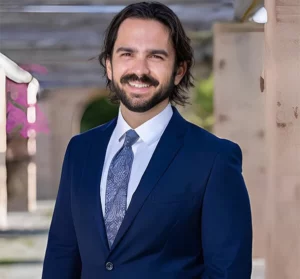What is Probate?

What is Probate? How Does It Work in Miami-Dade County? We’ve answered the most common questions you may have about the probate process in Florida. If you still have questions, please contact us for help.
Losing someone is incredibly hard. It’s never easy losing someone, and the legal implications of a loved one passing away can be challenging to navigate alone when you are dealing with heartache and grief.
When a loved one passes away, their “estate” — the property, assets, and debts they left behind — must go through a legal process known as probate before that property can be distributed to their surviving heirs.
Probate tends to get a bad rap for being time-consuming and costly.
However, it actually serves an important purpose.
Probate is about validating the will, identifying and inventorying assets, paying any outstanding debts or taxes owed, and making sure what’s left gets distributed responsibly to the rightful beneficiaries.
Why is Probate Required in Miami-Dade County?
Many people mistakenly assume that once someone dies, beneficiaries have the right to access bank accounts or property of the deceased if they were named in the Will or were the surviving next of kin.
The question you have to ask is, without probate, how do you prove who is legally entitled to what?
How are the remaining debts (if any) going to be paid?
How is the distribution of assets decided?
And who is responsible for making those decisions?
The answer is simple: The main purpose of the probate court is to supervise the distribution of assets and ensure everyone’s interests in the estate are protected. How these assets are distributed depends on what type of estate planning was done beforehand. If there is a trust in place, oftentimes, this means that no one has to go to probate court. But if there wasn’t, probate court is essentially guaranteed — even if there was a Will.
Note that not all estates have to go through formal probate proceedings. Several scenarios allow you to avoid or shortcut the process, like small estates under a certain value or those placed fully in trust.
What Are Probate Assets?
Anything solely owned by the deceased falls into their “probate estate.” Assets not governed by probate include those shared via joint accounts or surviving spousal ownership. Living trusts, also known as revocable trusts, also bypass probate, assuming they were properly set up and maintained.
Common probate assets can include the family home or vacation properties not jointly held or in trust, vehicles or boats solely in the deceased’s name, bank accounts without designated beneficiaries, brokerage accounts, business interests, personal belongings like jewelry and art, and whole life insurance payouts.
Who Oversees the Probate Process in Florida?
The court appoints someone known as an executor or personal representative to oversee everything. They have extensive fiduciary duties in the administration of the decedent’s estate.
This is why executors or personal representatives often hire attorneys for guidance.
Some of the duties of an Executor or Personal Representative include:
-
Petitioning the probate court to officially validate the will and open probate
-
Notifying beneficiaries and creditors about the proceedings
-
Creating a comprehensive inventory of assets (like homes, bank accounts, stocks, etc) along with estimated valuations
-
Managing, maintaining, and selling estate assets as needed to pay debts
-
Paying valid claims made by creditors against the estate
-
Filing any outstanding tax returns and paying taxes owed
-
Finally, distributing the remaining assets to rightful heirs
That distribution piece is why an executor also handles tasks like working with appraisers to properly value significant assets like real estate ventures. They want to make sure they know exactly what remains before dividing up the estate.
How Long Does Probate Take in Florida?
The duration depends on the size and complexity of the estate in question. On average, you can expect Florida probate to take between 6 and 9 months.
For simpler, smaller estates, we often see it wrapped up closer to the 6-month mark. Larger, more intricate estates dealing with lots of assets or property transfers may take over 12 months to finalize.
What Can Delay Probate?
Common probate hold-ups include:
-
Discovery of additional assets not included in the original inventory
-
Real estate or business sales taking longer than anticipated
-
Contests or disputes filed over the validity of the submitted will
-
Arguments over who is entitled to receive what inheritance
-
Claims by creditors that take time to verify and settle
-
Non-responsive executors failing to act in a timely manner
Skilled probate attorneys help ward off delays by proactively looking out for any red flags on the horizon. We want to resolve issues early, or at least anticipate issues in advance, in order to not have unnecessary delays in closing probate proceedings, which means distributing the assets.
What Does Probate Cost in Florida?
As with most legal matters, the cost depends on the unique circumstances of your case. The two largest expenses tend to be attorney and executor fees. Under Florida statutes, both personal representatives and lawyers have a right to claim “reasonable compensation” for estate administration based on a sliding percentage scale tied to the gross value. For estates worth $100,000-$1 million, fees usually fall around 2-4%.
Separate from those commissions, expect to budget for court filing charges, business valuations, accountant fees (if returns are complex), insurance bonds protecting the executor from malfeasance allegations, certified mail notices sent to all parties involved, maintenance of estate property until sold, and appraisals of any significant assets the deceased owned like commercial real estate or antiques. Collectively, these can range from a few thousand dollars to five digits for million-dollar estates.
In Florida, small estates under $75,000 typically qualify for a quicker, less arduous estate administration process known as summary administration.
How to Avoid the Probate Process Entirely
If probate concerns you, several estate planning strategies minimize or eliminate the need for court intervention after your passing:
-
Revocable Living Trusts: Transferring ownership of assets avoids probate and allows survivors to privately administer the trust terms you pre-defined.
-
Joint Ownership: Joint bank accounts, homes, vehicles, and investments pass directly to the surviving co-owner.
-
Payable-on-Death Designations: Accounts like life insurance policies and financial accounts designate who receives that money without needing probate approval.
While avoiding probate saves time and legal fees upfront, impartial court oversight provides extra legitimacy and fraud protection that benefits some families. As with most big choices, pros and cons exist on both sides.
Don’t Navigate Probate Alone – Let Us Guide You
We hope this overview gives you a better understanding of why probate serves an important purpose, what steps the process entails, common misperceptions, ways to potentially avoid court proceedings, and realistic costs based on factors unique to each estate.
Losing someone you love is painful enough without tackling a bunch of unfamiliar legal processes like probate alone. Trying to handle everything yourself amidst grief leaves you drained and overwhelmed.
Alexander Gil, PLLC, understands this difficult situation intimately. Our primary focus is helping grieving families deal with probate issues in Florida. We also help in all matters related to wills, trusts, and estate planning.
Our team stands ready to answer your probate questions, explain what lies ahead, and handle filings competently so you can focus on healing.
Our office is located in Miami Beach. We serve clients all over the State of Florida. All probate matters can be handled virtually. If you need help, contact probate attorney Alexander Gil for personalized guidance tailored to your unique needs.
Latest Reviews
C. U.
A. G.
M. R.
Y. H.
A. K.
